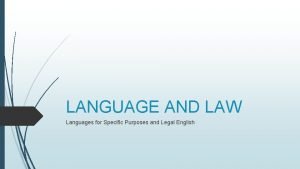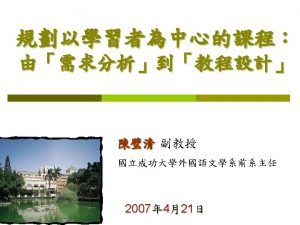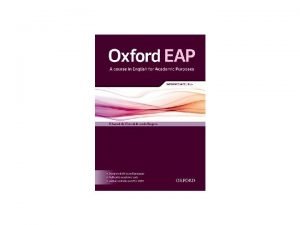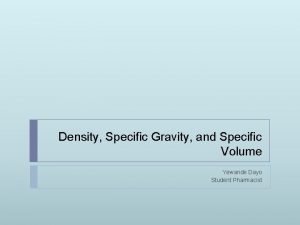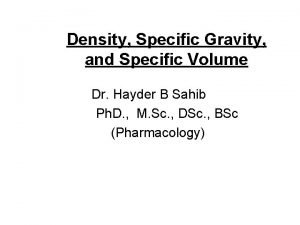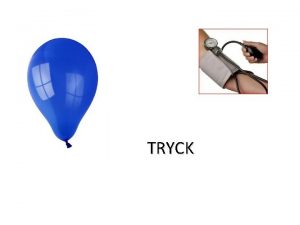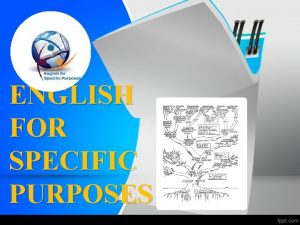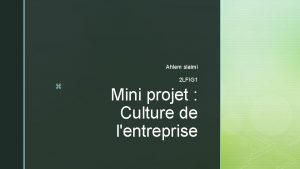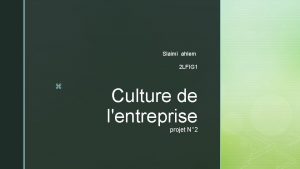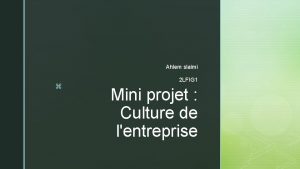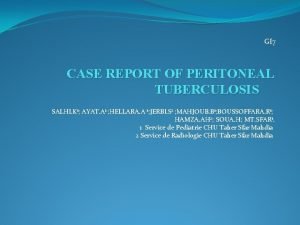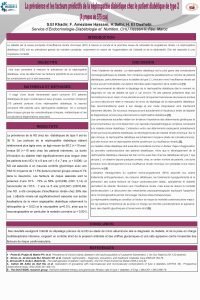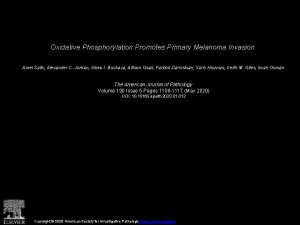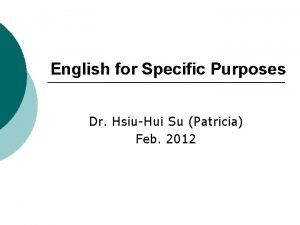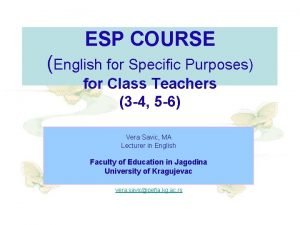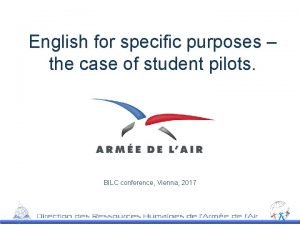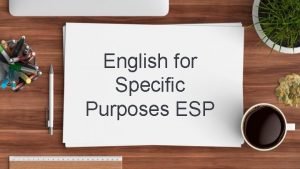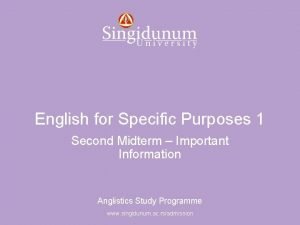English for Specific Purposes Dr SALHI Ahlem Definition

























- Slides: 25

English for Specific Purposes Dr. SALHI Ahlem

Definition of ESP �Some people described ESP as simply being the teaching of English for any purpose that could be specified. Others, however, were more precise describing it as the teaching of English used in academic studies or the teaching of English for vocational or professional purposes. __Anthony (1997)

Definition of ESP �“ESP is generally used to refer to the teaching of English for a clearly utilitarian purpose. ” __Mackay and Mountford (1978) That is to say that English should be taught to achieve specific language skills using real situations, in a manner that allows them to use English in their future profession, or to comprehend English discourse related to their area of speciality.

Definition of ESP �Generally the Students study English “not because they are interested in the English Language or English culture as such, but because they need English for study or work purposes” __(Robinson, 1991)

Definition of ESP �In ESP, “language is learnt not for its own sake or for the sake of gaining a general education, but to smooth the path to entry or greater linguistic efficiency in academic, professional or workplace environments” __Basturkmen (2006)

Origins of ESP � “ESP was not a planned and coherent movement, but rather a phenomenon that grew out of a number of converging trends”. �“But we can identify three main reasons common to the emergence of all ESP. ” The demands of a brave new world, a revolution in linguistics and a new focus on the learner. --- Hutchinson and Waters (1987)

Origins of ESP There are three main reasons 1. Demands of a Brave New World: English was the key to the international currencies of technology and commerce. 2. A revolution in linguistics: If language varies from on e situation of use to another, it should be possible to determine the features of specific situations and then make these features the basis of the learner’s course. 3. Focus on the learner: The development of courses in which “relevance” to the learners’ needs and interests was paramount.

Characteristics of ESP Dudley-Evans and St. Johns (1998): Absolute Characteristics 1. ESP is defined to meet specific needs of the learners; 2. ESP makes use of underlying methodology and activities of the discipline it serves; 3. ESP is centred on the language (grammar, lexis, register), skills, discourse and genre appropriate to these activities.

Characteristics of ESP Variable Characteristics: 1. ESP may be related to or designed for specific disciplines; 2. ESP may use, in specific teaching situations, a different methodology from that of General English; 3. ESP is likely to be designed for adult learners, either at a tertiary level institution or in a professional work situation. It could, however, be for learners at secondary school level; 4. ESP is generally designed for intermediate or advanced students. Most ESP courses assume some basic knowledge of the language systems, but it can be used with beginners.

The Difference between ESP and EGP �“there is no difference between the two in theory; however, there is a great deal of difference in practice”. __Hutchinson and Waters (1987)

The Difference between ESP and EGP

The Difference between ESP and EGP 1. Learners �ESP – specially designed for (working) adults �EGP – specially designed for high school students 2. Aims �ESP –the objective is to meet the needs of particular learners �EGP – to improve overall English competence involving a range of skills (reading, writing, speaking, listening, vocab, grammar, pronunciation etc)

Main Branches of ESP

Main Branches of ESP

ELT Tree

EAP versus EOP �People can work and study simultaneously; it is also likely that in many cases the language learnt for immediate use in a study environment will be used later when the student takes up, or returns to a job. ___(HUTCHINSON AND WATERS, 1987)

EAP versus EOP �However, the distinction can be made in the sphere of convenience. Courses in English for Occupational Purposes (EOP) train individuals to perform on the job, using English to communicate. This type of course would be useful for the training of lawyers for instance and administrative chiefs aiming at reaching a proficiency level.

EAP versus EOP �On the other hand, English for Academic Purposes (EAP) is applied for common core elements also known as “study skills”. They basically consist of writing academic texts, taking notes and observations, listening to formal academic discourses and making presentations.

Objectives in Teaching ESP �Basturkmen (2006) states the existence of five broad objectives: -To reveal subject-specific language use. -To develop target performance competencies. -To teach underlying knowledge. -To develop strategic competence -To foster critical awareness.

ESP Teaching and Learning Processes �In ESP teaching, some basic elements have to be taken into consideration, the most important of which are the learner needs, goals and motivation. Furthermore learners‟ attitudes towards learning and learning strategies are emphasized and seen as fundamental to the ESP process

ESP Teaching and Learning Processes Key Roles of the ESP practitioner: �Clearly explain the objectives. �Teacher or language consultant should understand the nature of students’ subject or vocation. �Course designer and material provider. �Researcher – Think the needs of students. �Collaborator by using texts, contexts, and situations. �Evaluator.

ESP Teaching and Learning Processes Key Roles of the ESP learner: q Focus for learning q Subject matter knowledge q Adult learning strategies

Stages in the ESP Teaching Process �“The key stages in ESP are needs analysis, course (and syllabus) design, materials selection (and production), teaching and learning, and evaluation. ” __Dudley-Evans and Johns (1998)

Stages in the ESP Teaching Process

Stages in the ESP Teaching Process
 Hamoud salhi
Hamoud salhi What is esp english for specific purposes
What is esp english for specific purposes What is esp english for specific purposes
What is esp english for specific purposes English for specific purposes law
English for specific purposes law Egp vs esp
Egp vs esp Oxford eap a course in english for academic purposes
Oxford eap a course in english for academic purposes Weight and density formula
Weight and density formula Specific weight to density
Specific weight to density Fspos vägledning för kontinuitetshantering
Fspos vägledning för kontinuitetshantering Typiska novell drag
Typiska novell drag Tack för att ni lyssnade bild
Tack för att ni lyssnade bild Vad står k.r.å.k.a.n för
Vad står k.r.å.k.a.n för Shingelfrisyren
Shingelfrisyren En lathund för arbete med kontinuitetshantering
En lathund för arbete med kontinuitetshantering Kassaregister ideell förening
Kassaregister ideell förening Tidbok yrkesförare
Tidbok yrkesförare A gastrica
A gastrica Densitet vatten
Densitet vatten Datorkunskap för nybörjare
Datorkunskap för nybörjare Boverket ka
Boverket ka Debatt artikel mall
Debatt artikel mall För och nackdelar med firo
För och nackdelar med firo Nyckelkompetenser för livslångt lärande
Nyckelkompetenser för livslångt lärande Påbyggnader för flakfordon
Påbyggnader för flakfordon Vätsketryck formel
Vätsketryck formel Offentlig förvaltning
Offentlig förvaltning



